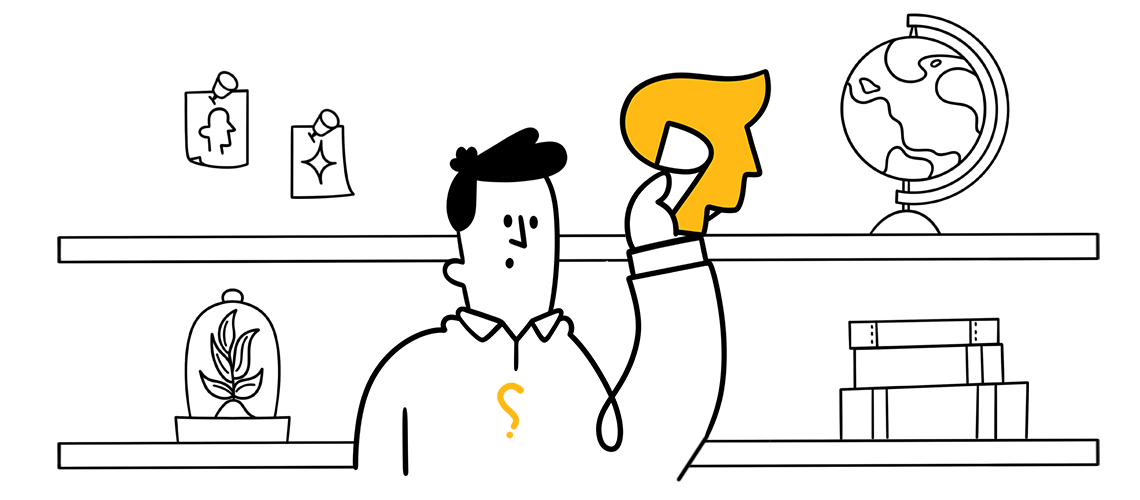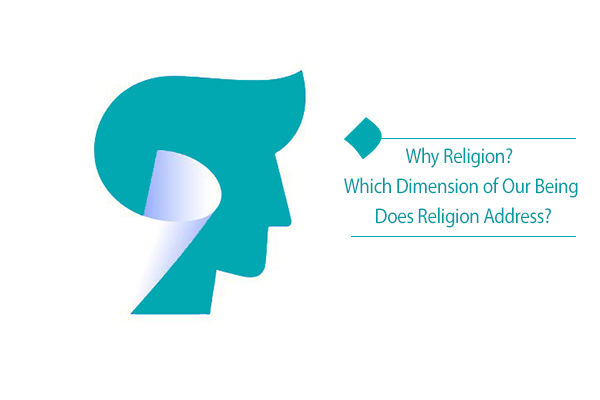Why Religion? Why Must We Limit Ourselves with Its Laws?
If we are unaware of our existential structure, this question definitely arises for us: What is our relationship with religion?
Why religion matters?
Why does not God leave us free?
If we are beings with free will, then what is the philosophy behind these cumbersome and restrictive laws?
As we have mentioned in previous lessons, we only realize the great impact and role of religion in our lives when we are born into the hereafter; otherwise, religion is certainly not attractive for a person who sees no purpose in his creation except comfort, a larger house, or a more luxurious car. We are usually willing to endure hardships to build a good future and envision a goal; otherwise, no logic would recommend giving up safe and comfortable conditions in vain. Someone who goes to the gym expects to have a healthy body or strives for championship. Someone who endures the hardship of preparing food looks forward to its preparation and consumption. A student who diligently studies and solves problems envisions a future career as the reward for his efforts. Naturally, if there is no goal, there will be no motivation.
Regarding religion, the situation is similar; that is, if there is no hereafter and purpose for our creation, we do not feel any reason or motivation to practice religion. Do we not know why religion is important and why we must accept its commandments? But our life is not limited to this world. Our life began before this world, and we will be born into the hereafter after this world. It is true that religion also affects our world, but in fact, it is a plan designed to bring us bliss in our eternal life in the hereafter. And the answer to why religion is a necessity becomes meaningful when considering the true meaning of life and the three stages of existence.

A Natural Fit: Fitrah and Religion
It is rare for successful people to act without a plan. So it is not strange that God, the wise Creator of the universe, determined the path for humans before creating them as the most comprehensive entity and a potential collection of divine names and attributes. He has also outlined the stages and conditions for humans to achieve bliss. God has designed our fitrah based on this divine plan, and our existential program is in accordance with religion. In fact, God tells our existential faculties what to do through religion which supports us in reaching God and becoming similar to Him.
For this reason, if we truly understand the true religion and know our existential dimensions, we will realize the perfect harmony and compatibility between the two. So if at any point we take a stance against religion or doubt a part of it, it means we have distanced ourselves from the structure of our existence and the truth of our fitrah. This is because true religion always remains the same; it is we who may misplace priorities and lose our human balance. Let us clarify this with an example. As humans, we have specific dietary needs, consuming vegetables, grains, meat, and more. Our bodies naturally have the ability to extract and absorb the necessary nutrients from these foods. In other words, our bodies are compatible with this diet. Now, suppose if we were unable to digest meat or vegetables, react to them or see our bodies adapting to unnatural substances. Clearly, the problem would not lie with the food itself. It would be our bodies that had changed and become unbalanced. To restore harmony and reap the benefits of a healthy diet, we would need to return our bodies to their normal state. Similarly, we can only benefit from religion and its results when we our souls are balanced and harmonious.
Acceptance of Religion
Every relationship requires rules and laws, and the human connection to God is no exception. In fact, true religion is a program and rule that God designed for preserving this relationship and guiding us toward our creation’s purpose. While accepting religion is not compulsory[1], God has granted us free will, which includes the freedom to choose our beliefs, but divine guidance is clearly distinct from misguidance. Any sound mind would conclude that a plan designed by the Creator, encompassing all dimensions of existence, is the optimal path toward achieving one’s purpose.
Once someone understands that navigating an unfamiliar, important, and dangerous path without expert guidance is impossible, he is more likely to embrace the challenges of following that expert’s advice. This is because he recognizes that his bliss and achieving the goal depend on adhering to the prescribed plan. By choosing religion and the program of bliss, we see ourselves worthy of achieving the purpose of creation and becoming similar to God. Naturally, attaining such a lofty goal requires certain conditions and requirements, like a person who decides to continue his education or join a fitness club and prepares for all the hardships and challenges involved.
Reason for the Difficulty or Ease of Religion
Now the question is why religion is easy for some people and difficult for others? Religion, like the rest of the system of creation, has a completely mathematical structure. It is all about how we approach it and at what level we connect with it. Usually, we start with superficial religiosity, which means following its rules and regulations, while our fitrah is actually connected to the truth of religion, and this is where we naturally feel the strongest connection. So logically, when connecting with religion, we must start from the part where we have the most common ground and the strongest inclination. If we know our true self and the dimensions of our existence, we will have no problem with the truth of religion, but rather, we embrace it because it is in harmony with our true self. That is why some non-believers find it easy to connect with religion. The more we nurture our fitrah, the easier religion becomes. To truly connect with religion, we need to both refer to the right part of religion initially and approach it with a correct and fitrah-oriented perspective.
In this lesson, we explored the human connection to religion and why religion exists. We learned that God created religion as a program before our creation. Therefore, our existential structure is in complete harmony with religion. The reason why religion is difficult to follow or why we are resistant to religious rule is that we are out of balance. The problem is not with religion; in truth, our main problem with religion stems from a lack of understanding of our true self and our incorrect approach to engaging with religion.
In which part of your existence do you consider religion to address? Do you expect religion to fulfill the needs of your lower parts or to bring you closer to your purpose of creation?
References
[1]. Quran, 2:256

